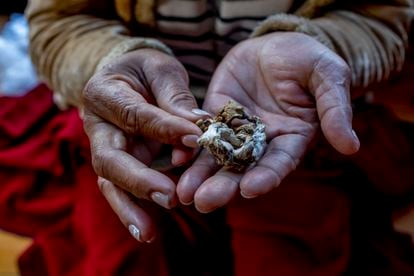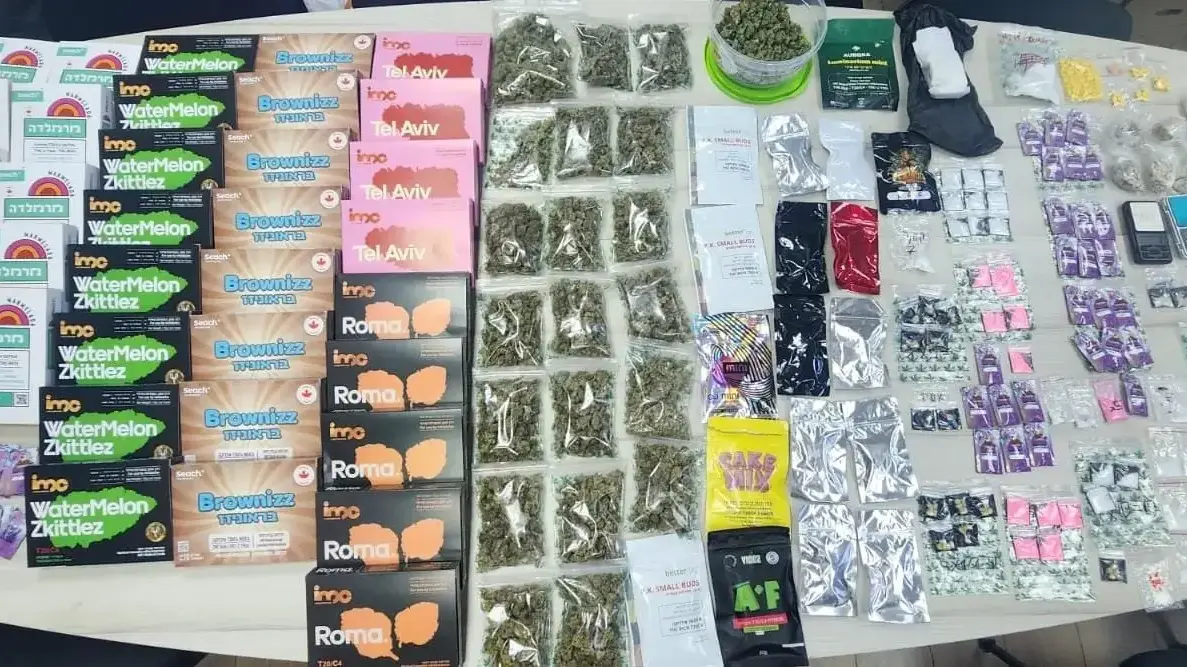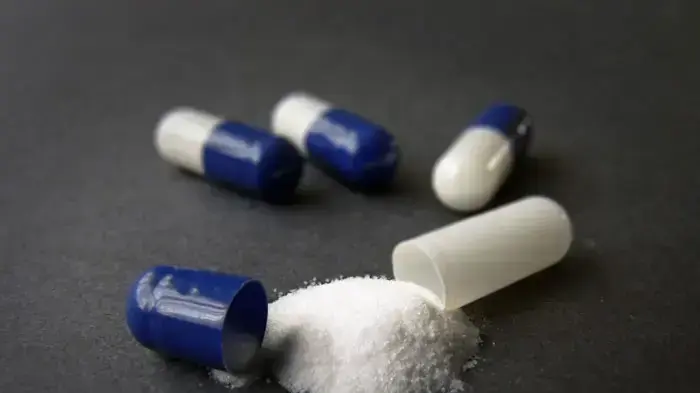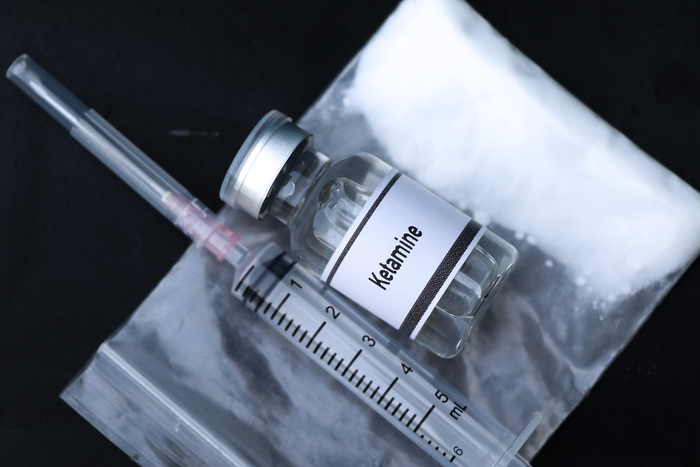When María del Mar Betancur opens her eyes, she finds a small plastic envelope with her name on it, a piece of rose quartz and four dried mushrooms inside.
In this wooden cabin, in an idyllic corner of Santa Elena, a district of Medellín, it smells of rosewood and incense.
It doesn't sound like a city here.
Like her, eleven other people, sitting in a circle, take the “magic mushrooms” out of the package and finger them curiously.
“Put an intention on them,” recalls Victoria Cubillos Ortega, 28.
She is one of the five psychologists who will accompany this group psychedelic therapy session.
“Think about what you want the mushrooms to show you,” she says.
Meanwhile, each one of her consultants thoroughly chews the mushrooms.
For some, it is the first time and this is the “after trying everything” alternative.
Others are already veterans.
"Now yes,
One to two hours later, the effects of those three grams of the
golden teacher
strain kick in .
Angie Paulina Reales, 23, hits very fast.
She sits up, cries and narrows her eyes as if the light bothers her.
Minutes later, she thinks she is a chick about to hatch and feels "very afraid": "I don't want to be born."
Her aunt, “the mother of the session”, spends much of the ceremony unwell and constantly vomiting.
Antonietta Zerpa, 27, spends more than six hours of ceremony writing in a notebook.
Manuela Moreno, 25, cries on the swing with her hands anchored to her chest.
Sebastián Álvarez, 32, came across “very beautiful” images of his childhood and experienced the five senses “like never before”.
Even though it is a collective therapy, the journey is different for each patient.
María del Mar Betancur, 28 years old, social worker. Santiago Mesa
The magic is in the psilocybin.
This molecule is possessed by nearly 200 species of fungi and is responsible for the psychoactive and hallucinogenic effect of these fungi.
This component is the center of study for more than 20,000 scientific investigations and derived reports that still try to solve all the unknowns surrounding mushrooms.
What they throw up is that these organisms are beneficial in treating depression, anxiety, and post-traumatic stress.
According to the John Hopkins Institute, these ceremonies, accompanied by therapy, produce "large and long-lasting reductions in depressive symptoms."
Other analyzes also speak of steps forward in eating disorders and suicidal tendencies.
That is why several countries have opened the door to mushrooms for medicinal purposes.
Canada was the last to recognize its benefits and, just six months ago, allowed its therapeutic use.
Also Jamaica, Holland, Switzerland and several US states, among others.
Colombia, however, in a tireless fight against psychoactive substances, keeps these organisms on the list of prohibited drugs.
Julián Andrés Quintero, a sociologist and director of Acción Técnica Social, an organization focused on psychoactive substance policy reforms, laments living in a country “that has only known the war on drugs.”
“The only approach that governments have had is elimination.
And not only from the military, but from public health.
In Colombia, only a pathologizing perspective of substances is proposed and that has remained in our DNA.
With that view, it is difficult to explore the benefits that the reference entities have proven”.
In Colombia, only a pathologizing perspective of substances is proposed and that has remained in our DNA.
With that view, it is difficult to explore the benefits that reference entities have proven
Julián Andrés Quintero, director of Social Technical Action
In the Andean country, hallucinogenic fungi are in legal limbo.
Self-cultivation and carrying is allowed, but psilocybin in synthesis is prohibited and there are no regulatory protocols for mushroom therapy.
Without them, practice is not an option.
The psychologists who carry it out rely on a constitutional principle by which the doctor has autonomy to formulate the treatment as long as he knows the risks and the other therapeutic options.
This principle, however, lacks legal guarantees in case of injury or death of the patient or lawsuits by third parties.
"Doctors are not legally protected," explains Pablo Zuleta, director of the area of drug use, public health and education at the Center for Drug and Safety Studies (CESED).
Mushrooms that will be ingested by the participants of the psychedelic therapy.
santiago table
That is why these treatments are made known by word of mouth;
finding advertising is very rare.
And no doctor (unrelated to these practices) still prescribes psychedelic sessions.
Zuleta considers that there is still a long way to go to reach the point where prescribing microdoses of mushrooms is as normal as recommending antidepressants.
“Each of the substances with medical potential (LSD, mushrooms, ecstasy) should have a different regulation than other drugs.
They are different in terms of addiction, danger and medical benefits.
This has already happened with medical cannabis.
But in Colombia this other conversation has not yet started.”
Fungi represent the second most diverse kingdom after animals, with an estimated number of 2.2 to 3.8 million species worldwide.
Despite the recognition that they are beginning to have, their study has historically been in the shadows, unlike the investigation of fauna and flora due to a global prohibitionist vision.
The first study in this regard dates back to the 1950s, but they were interrupted for decades.
Although they were studied again in the 1970s, it was only 18 years ago that countries began to remove legal obstacles to their in-depth investigations.
The WHO estimates that 300 million people suffer from depression.
Of them, more than 30% do not respond to conventional treatments.
Given the international findings and the fact that the number of Colombian fungi represents almost 10% of the world's fungal diversity, the country could be closing the door to a key tool to improve the mental health of its citizens, which has deteriorated greatly after the pandemic.
Quintero, from Acción Técnica Social, also insists on the "moral and historical legitimacy" of the country to become a benchmark on drug policies.
“A new debate is going to open as of August 7 [the day on which the new president, Gustavo Petro, and the vice president, Francia Márquez, take office].
I know that there is already an intention to regulate psychedelic therapies.
There is a lot of expectation because Petro raised a long-awaited transition.
And although it will not be easy, I think that Iván Duque was the last prohibitionist Colombian president.”
“They have powers”
To one side of the room is a small altar, with tobacco, incense, precious stones, and a smiling portrait of María Sabina, the most respected (and famous) Mazatec healer from the Mexican state of Oaxaca—she was the shaman who presided over the mushroom ceremony of the Beatles in 1969—) of the region.
They attribute the term "children of god" to her, in reference to the magical fungi, also known as "the flesh of god" or "the divine molecule".
And, whoever tries them, agrees.
“They are not of this world.
They really have powers”, assured the consultants after the psychoactive effects.
For many indigenous communities, especially in Mesoamerica, this divine potential was never a secret.
Mushrooms have always been part of ancient medicine.
Victoria Cubillos plays various instruments to support the therapy and help participants relax.
santiago table
Precisely in honor of these traditions, Victoria Cubillos joins in her therapies other rituals such as the blowing of snuff, tobacco and the playing of original instruments such as the Amazonian flute and the chajchas.
“Our way of giving back and giving back to the mushrooms for everything they are going to give us
right now
is by changing our lives.
Not today and not here.
Morning.
And to the other.
And to the other”, explains the director of Anowuta, “We do it honoring the knowledge of our ancestors”.
The trip is what it has to be.
Sometimes it's to the darker side;
to hell, but we are waiting to accompany the patients
Victoria Cubillos, psychologist specialized in psychedelic therapy
When the mushrooms begin to act, Cubillos' eyes are attentive to every expression or gesture of his consultants.
He puts his hand on the chest of someone who is anguished, whispers and lovingly combs someone who cries, and brings a plastic bag closer before the patient even senses vomiting.
During the almost nine hours of session, care and containment are a constant.
“The trip is what it has to be.
Sometimes it's to the darker side;
to hell”, ditch, “but we are waiting to follow the whole process;
that they do not feel alone is very important”.
“This is not something for hippies”
She is sitting on one of the logs in the garden of this house.
She rubs her sweaty hands nervously and smiles shyly.
It is the second time that Antonietta Zerpa, a 27-year-old Colombian-Venezuelan, is encouraged to experience this ceremony, but it is the first in a group.
"I was another person," recalls this translator with a small voice.
“I lived with permanent depression and anxiety.
Especially after the pandemic.
I tried everything: psychiatric, psychological, cognitive therapies, mindfulness… I have taken drugs.
And nothing.
But after the first mushroom shot, everything changed,” she says.
“I have not taken antidepressants or have dizziness again.
My only treatment is this and the consultations”.
For María del Mar Betancur they have also been her last hope.
"I tried to kill myself twice.
Experts explain that mushrooms manage to reduce the ego and lower all the value judgments with which we live daily.
'Don't think this.
Do not do it.
That's wrong.
Look how ridiculous you are.
What are they going to think of me?'
But it is not a silver bullet, everyone agrees on that.
The place where they are consumed, the predisposition of the consultant, the doses and the experience of the therapists matter.
Doses range from micro (0.1 to 0.3 grams), which do not have psychoactive effects and are used as a replacement for anxiolytics or antidepressants and always with therapeutic support, to heroic (around five grams).
The next step after eating mushrooms is to lie down, relax and receive massages to relax the body and mind.
santiago table
“People tend to think that this is a hippie thing,” says Camilo Durán, psychotherapist and alternative therapy companion.
“But the profiles are the most varied.
In fact, the most common thing is that the consultants who try the mushrooms do it only once, and because we recommend it in therapy.
Some come with the intention of trying them, but they are the least”.
This 28-year-old Colombian has been working with psilocybin and self-cultivating mushrooms for three years.
"I always knew that through them you could reach conclusions that in regular consciousness were very difficult," he narrates from his home and office.
“It is very normal that childhood memories are unlocked in the sessions, for example, that were repressed for a specific reason.
When the patient remembers it, in a certain way, it is as if he chewed it up and began to understand it.
And this is a good start to work on it in therapy from a broader clarity.”
In the cabin, with the windows full of drawings of mushrooms and words like "love" and "care" written in neon colors, there is a table with paintings, instruments hanging from the stairs, notebooks and pens and a table full of fruits and vegetables. appetizers.
“What the fungi achieve is to turn off the switches of judgment and continuous censorship that we exercise as adults.
That is why it is very normal that the first thing we feel is a great desire to be creative”, explains Cubillos while she stirs cocoa and adds the mushrooms that she herself grows and dries.
In the group ceremony, for which each patient pays 200,000 pesos (about 45 euros), the therapists also consume psilocybin, although to a lesser extent.
"That way they don't feel judged by someone who isn't on a trip either."
Mushrooms manage to reduce the ego and lower all the value judgments that people live with on a daily basis. Santiago Mesa
Around a bonfire, six hours after the shooting, many begin to come out of “the trance” and share complicit glances and feel, with their eyes closed, the music played by the psychologists.
"Pss, hey, how are you?", says María del Mar Betancur to the friend with whom she came.
The latter, wrapped in a colorful blanket on the other side of the fire, replies: “I'm fine, I still feel strange, but I also feel peace.
And you?".
"Better than ever".
Subscribe here
to the EL PAÍS newsletter on Colombia and receive all the key information on the country's current affairs.





/cloudfront-eu-central-1.images.arcpublishing.com/prisa/EDWLLTRHDZHOBBSTLPCSUIBR5U.jpg)



